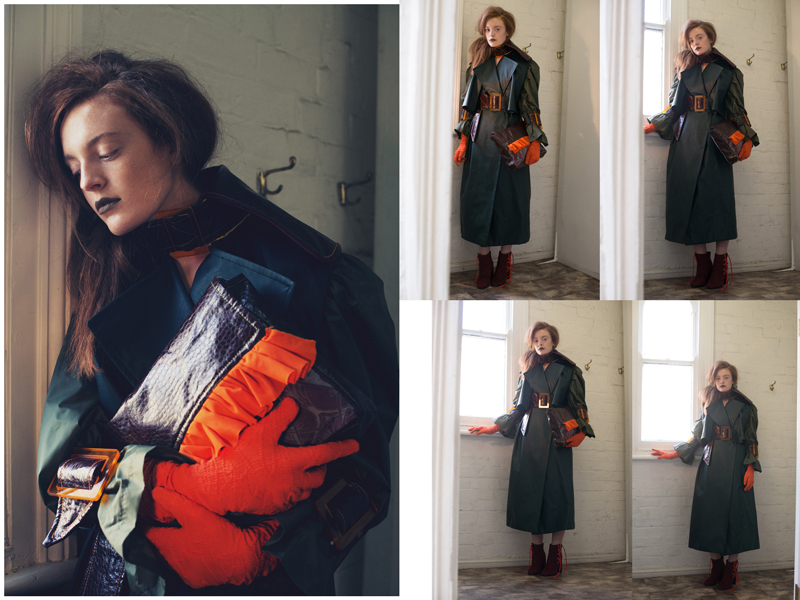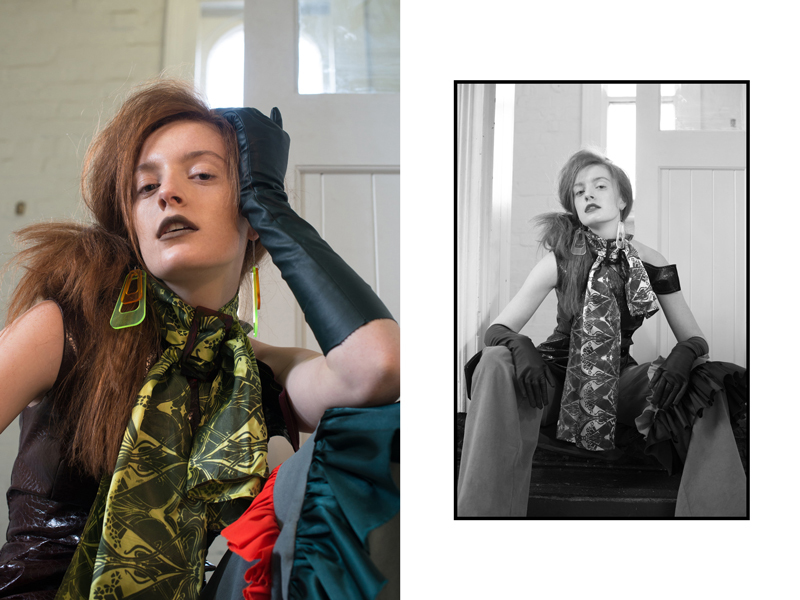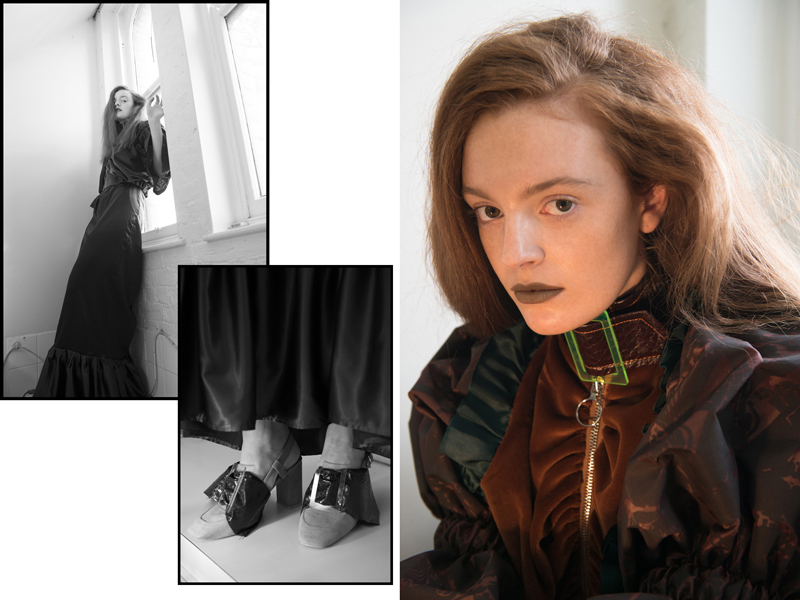For Elizabeth Hutchinson, the most interesting thing about fashion is what’s out, not in. It’s an unusual stance to take for any designer, let alone a recent graduate looking to make an impression. But to Hutchinson, the mystery doesn’t lie with what’s in style, but rather why we’re so easily swayed to admire something one day and despise it the next. In her first collection, Hutchinson looked to iconic 20th century trends, observing the cyclical nature of what we love and hate, and set out to distill this tumble of churning opinions into her looks. We caught up with her to talk about being purposely out of style.
As a designer, why do you think we should be looking at what’s out of style rather than in?
Fashions almost always return, however when revitalized they often lack finer elements of the original trend held. I find this the most interesting aspect of trends: the idea we can adore something at one stage, and months later despise it and wonder what ever attracted us to it.

Do you think the way we digest and move on from trends has changed in recent years? Especially with the much-discussed speeding up of the fashion cycle.
I believe the faster expiration of trends is a combination of the accessibility of fashion through high street stores and the instant dissemination for fashion seasons through social media. Fashions no longer have to go through the “trickle down theory” from higher to lower end, instead they’re available to everyone all at once.
We’re talking a lot about trends, but they’re not the entirety of fashion. There are pieces and styles that are constant.
Absolutely, there are garments that are timeless as opposed to trends which are almost destined to go out of date. However, the trend may come through the way we wear that garment. For example: the trench, which features in my collection, could be argued to be a garment that never goes out of fashion, and rightly so. However, the way we wear it has changed. The fine details, the cut, the line, and the fabrication are all minor details — but when combined they result in greatly different forms, which we situate within distinguishable decades.

You talk about mashing together iconic 20th century “garment moments” in your collection. Can you explain that a little more?
I began focusing on moments through the 1910s to the 1950s which saw the introduction of feminine silhouettes, gloves, and poet or bishop sleeves. From here I looked at entire garments such as the trench, which has absolutely remained relevant over time, but had a moment in the 80s. Whilst we typically remember the 80s as the decade of power suits and over-the-top shoulder pads, the trench featured dropped shoulders and slouched shoulder pads. Such features can be seen throughout the collection, with all garments with sleeves featuring this dropped, slightly misplaced shoulder line.
Often when we revisit trends, we’re reworking them. I like that you’re kind of celebrating the awkwardness of things that are out of date.
The collection absolutely celebrates what makes us cringe about things we may have worn. For me, it was about bringing back moments we find difficult to love again and reworking them in a way that may make us question why that is. While I wouldn’t say the collection successfully convinces us that these moments are all of a sudden at the height of fashion, I do think it forces you to wonder how and why your brain is so easily swayed to admire something one day and despise it the next.

Credits
Text and art direction Jamie-Maree Shipton
Photography Agnieszka Chabros
Hair Xeneb Allen
Make up Lily Swan
Assistant Jay-Dee Pitcaithly
Model Caitlyn @ FiveTwenty Management
